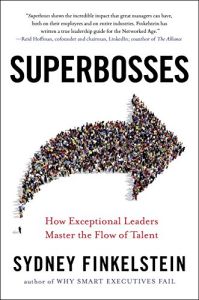Join getAbstract to access the summary!

Join getAbstract to access the summary!
Sydney Finkelstein
Superbosses
How Exceptional Leaders Master the Flow of Talent
Portfolio, 2016
What's inside?
The best bosses attract, develop and inspire world-class talent.
Recommendation
Dartmouth College business professor Sydney Finkelstein asked star performers across many industries, “Who is the best boss you’ve ever worked for?” They described driven, enigmatic, tireless “superbosses.” These leaders seed entire industries with the talent people they nurture. Finkelstein argues that a small number of bosses produce the great majority of the best talent – a sort of 80/20 rule. Refreshingly, he doesn’t portray superbosses as admirable in every respect. Should you ever work for one, you might not like him or her, and you won’t use the adjective “nice.” But you’ll do anything for that boss – someone you’ll never forget and will even come to love in a way. Though Finkelstein sets the superboss bar fantastically high, getAbstract believes leaders at all levels will learn enough from his investigation to become at least a little more super.
Summary
About the Author
Sydney Finkelstein, PhD, is a well-known thought leader, consultant, and executive coach. He teaches management at the Tuck School of Business at Dartmouth College and is the director of Tuck’s Center for Leadership. His eight previous books include the best-selling Why Smart Executives Fail.


















Comment on this summary